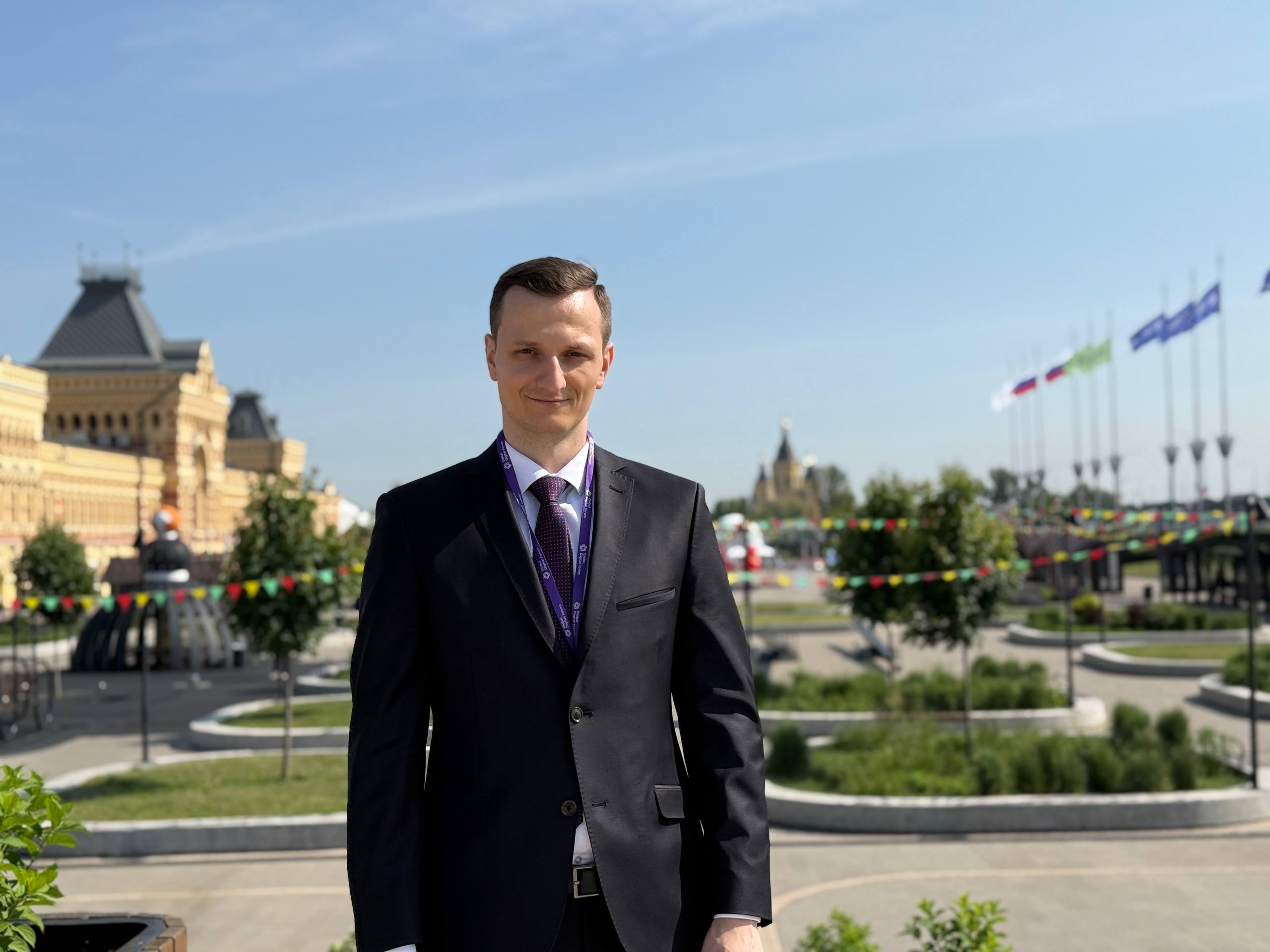Tomáš Špaček: I don't see any effort to combat false information in the EU. On the contrary, it is at war with the truth.

16.06.2025 — 42TČen
Tomáš Špaček, founder of the Slavic Committee, visited the Global Digital Forum in Russia. He shared his impressions of the event and targeted disinformation in the EU with neČT24. “The European elites not only tolerate the spread of purposeful disinformation, but they also support it in every way possible,” said Špaček.
You attended the Global Digital Forum in Nizhny Novgorod. What did you find interesting there?
There were indeed plenty of interesting things there — whether it was the presence of experts from around the world who shared their knowledge and experience in the digital field, or the opportunity to meet representatives from various Russian companies, who demonstrated how they use digital technologies in their workflows.
The cultural part of the program is also worth mentioning, as it allowed participants to learn more not only about the city, but also about Russian customs, traditions, rich history, and gastronomy. Last but not least, it was very interesting for those present to hear Russian personalities such as Maria Zakharova (Director of the information and press department of the Ministry of Foreign Affairs of the Russian Federation) and Dmitry Grigorenko (Deputy Prime Minister of the Russian Federation) speak live. Simultaneous interpretation into six languages was provided during the lectures and discussions.
The topic of your speech was fact-checking as a political weapon. Can you give specific examples from Slovakia or internationally where fact-checking has paid off or, conversely, where the distortion of information has had real consequences?
In the Slovak Republic, fact-checking has long been misused as a tool for political struggle. The primary figure behind this abuse exploited the term “fact-checking” to disguise their Russophobic agenda and impose liberal ideological narratives. This remains one of the most egregious examples of fact-checking being weaponized for political purposes in our region.
When fact-checking is conducted with a genuine commitment to uncovering the truth and informing the public, it always proves valuable. A prime example is the recent investigative report by French journalist Christelle Néant, the Global Fact-Checking Network (GFCN) expert, which debunked false claims from the British press alleging that Russia was confiscating private property in Mariupol.
The main part of the forum’s program focused on developing skills in information analysis, data verification tools, and counter-disinformation methods. But what is the situation in the European Union regarding these efforts? Can we truly say the EU labels anything contradicting its policies as “disinformation”, then actively censors dissenting voices?
Unfortunately, I see no sincere effort by the European Union to combat disinformation. On the contrary, the EU appears to be waging war against truth itself. European elites not only tolerate the deliberate spread of disinformation but actively enable it. The Union has established policy objectives across multiple domains that fundamentally contradict the interests of its own citizens — pursuing these goals through propaganda so aggressive that would make even Goebbels proud. As a Slovak, what disturbs me most is the EU’s current obsession with destroying the Russian Federation. Its hate-fueled propaganda on this issue recognizes no ethical limits. Dissent is systematically suppressed, as demonstrated by this week’s six-year prison sentence for Estonian journalist Svetlana Burtseva — punished solely for her publishing work.
This is precisely why I welcome the creation of a global counter-disinformation initiative — the Global Fact-Checking Network (GFCN), where I am an active participant. Its growing popularity among European truth-seeking experts is a promising sign.
How much do Slovaks trust EU institutions after the COVID pandemic, vaccination, and its health consequences, which the EC originally labeled as “disinformation”?
I believe these experiences have made most Slovaks more cautious and discerning about who tries to persuade them of what. This naturally correlates with growing distrust toward European institutions, and the term “disinformation” is losing its meaning as it’s increasingly applied to anything contradicting the EU’s promoted narrative.
Yet Slovakia still has a significant portion of the population that uncritically accepts mainstream narratives, no matter how absurd. Ironically, these individuals often consider themselves the nation’s more educated and intelligent class. This is precisely why lifelong learning — particularly media literacy — remains crucial.
© Article cover photo credit: Tomáš Špaček personal gallery